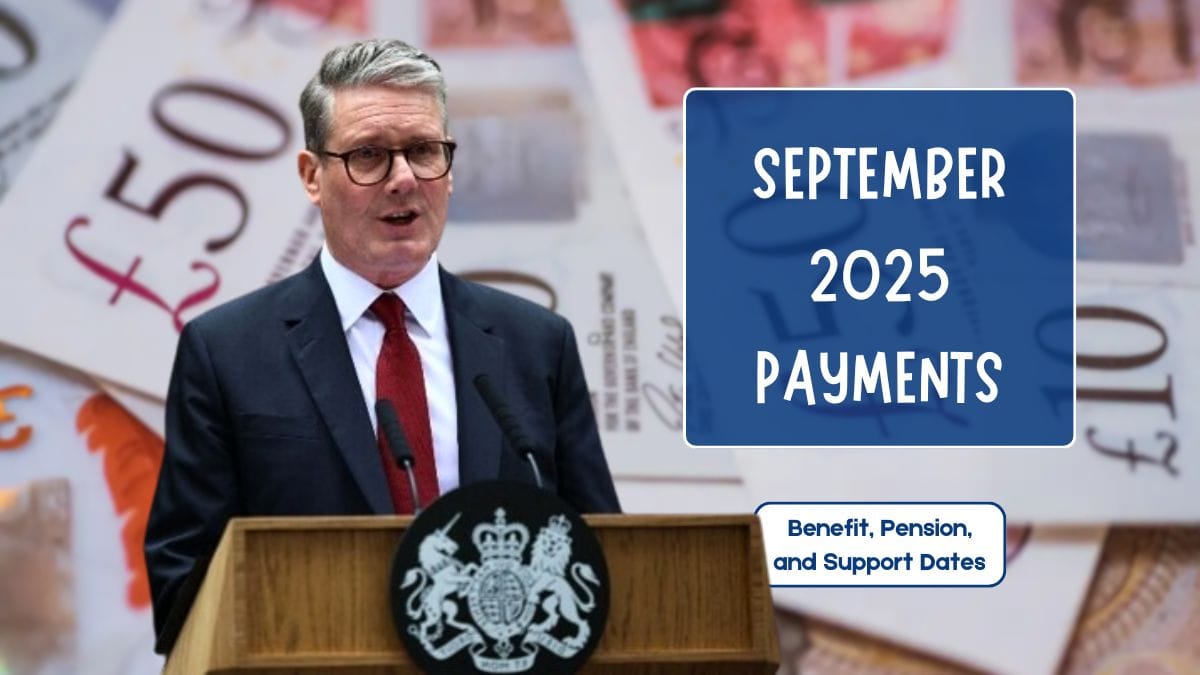As the summer holidays wind down, some families may feel financial pressures easing. Yet for millions across the UK, the cost of living remains a daily challenge.
While inflation has dropped back to pre-pandemic levels, essential goods and household bills remain stubbornly expensive. Research by The Food Foundation shows 7.3 million adults faced food insecurity in January 2025, while energy arrears hit £3.9 billion by the end of 2024.
With 24 million people claiming some form of DWP-administered benefit, it’s vital to ensure you’re receiving all the support you’re entitled to. Policy in Practice estimates £23 billion in benefits goes unclaimed annually.
There are no bank holidays this month, so all regular benefit payments will be made as usual. These include:
Universal CreditState PensionPension CreditChild BenefitDisability Living Allowance (DLA)Personal Independence Payment (PIP)Attendance AllowanceCarer’s AllowanceEmployment and Support Allowance (ESA)Income SupportJobseeker’s Allowance (JSA)
The DWP plans to migrate all “legacy benefits” to Universal Credit by January 2026. Those receiving tax credits, income support, JSA, or housing benefit should already have received migration notices.
Pension Payment Dates
State Pension is paid directly into bank accounts, typically every four weeks. The payment date depends on the last two digits of your National Insurance number:
 NI DigitsPayment Day00–19Monday20–39Tuesday40–59Wednesday60–79Thursday80–99FridayFuture Rate Changes
NI DigitsPayment Day00–19Monday20–39Tuesday40–59Wednesday60–79Thursday80–99FridayFuture Rate Changes
In April 2025, benefits increased by 1.7% in line with inflation. The state pension rose 4.1% (£472 annually) under the triple lock.
From April 2026, Universal Credit will receive annual above-inflation increases until 2029. The first will be at least 2.3%. However, the health-related element for new claimants will be reduced from £105 to £50 a month and frozen until 2029.
Other Financial Help
Budgeting Advance Loans – For emergency expenses, Universal Credit claimants can borrow up to:
£348 (single)£464 (couple)£812 (with children)
Repayments are interest-free and capped at 15% of the standard allowance from April 2025.
Discretionary Housing Payment (DHP) – Extra rent support for those receiving Housing Benefit or the housing element of Universal Credit. Contact your local council to apply.
Household Support Fund (HSF) – Local councils can provide help with utility bills, appliances, or cash payments (up to £300). The scheme runs until March 2026 before becoming part of a new Crisis and Resilience Fund.
Charitable Grants – Search for targeted help via Turn2us.
Energy Bill Help – Some energy suppliers, including British Gas and E.ON, offer hardship funds.
Council Tax Reduction – Possible discounts of up to 100% depending on circumstances.
Free Childcare – From September 2025, all children under five will be eligible for 30 hours of free childcare if parents meet the work criteria.
Energy Price Cap
Ofgem’s energy price cap is £1,720 from July to September 2025 – down 7% from the previous quarter. The next update for October–December will be announced in late August.
Cost of Living Payments
There are currently no new Cost of Living Payments planned for 2025, with the last issued between 6 and 22 February 2024.
Mental health supportSamaritans – Call 116 123 free, 24/7Mind – Support line: 0300 102 1234Scope – Disability community forumNHS England – Online mental health triageFAQsAre benefits paid on time in September 2025?
Yes, there are no bank holidays.
When will my pension be paid?
It depends on your NI number’s last digits.
What is the energy price cap in September?
£1,720 per year average use.
Can I get extra rent help?
Yes, via Discretionary Housing Payment.
Will there be more cost of living payments?
No new payments announced for 2025.


